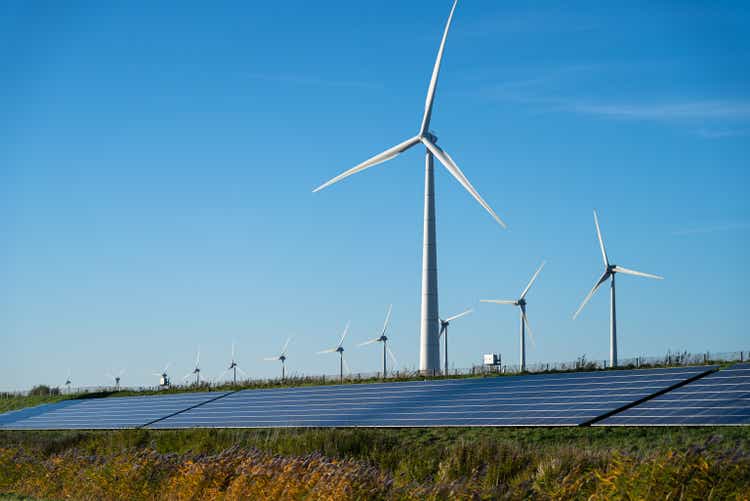SanderStock/iStock via Getty Images
By Mark van der Geest
A value chain lens can help to identify competitive forces and their likely beneficiaries.
As the world scrambles for energy security, we believe a “value chain lens” offers a different perspective with which to view environmental, social, and governance issues. It allows a better understanding of technological development and disruption, and can help to identify the competitive forces acting across the value chain—and thus in the selection of “transition winners.”
For example, who would have thought that France’s brilliant nuclear engineers would one day face significant competition from a technology like photovoltaic (PV) solar cells? Looking at today’s levelized cost of energy—measuring of the cost of electricity generation over an asset’s lifetime—the average cost of a new PV system is around $47 per megawatt-hour (MWh). Building a new nuclear reactor costs almost $460 per MWh, or close to 10 times as much.
Within this space, solar inverters appear to have the upper hand over solar panels. The former have only a few dominant players, whereas the latter operate in a far more competitive field. Among other advantages, solar inverter manufacturers have built extensive intellectual property and are now developing brand recognition and warranties, raising barriers to entry.
In our view, recent events in Ukraine have strengthened the case for solar. Demand for solar energy in the Benelux market (Belgium, the Netherlands, and Luxembourg) is outstripping supply, which will likely continue for at least 18 – 24 months. The main reason is higher gas prices, which have increased four times for consumers and 10 – 13 times for companies. Suppliers are struggling to produce new solar equipment, while long lead times—due to component and chip shortages—are also causing issues.
Energy storage is another “hot” area. Sales of consumers’ excess power back to the grid are expected to decline next year 2023 in the Netherlands, which could drive more battery adoption. In Germany, 80% of new residential solar projects are sold with a battery solution attached. These can cost €5,000 – €8,000 each, with current payback to purchasers of around five years.
Solar is just one area where we anticipate transition winners. The Netherlands is among the most advanced markets for electric vehicles (EVs), and it’s been a strong market this year—driven partly by higher gasoline prices, which is making electric vehicles seem more affordable. In our view, companies with a “first-mover” advantage in the EV charging space—along with solar inverters—present exciting opportunities.
This material is provided for informational purposes only and nothing herein constitutes investment, legal, accounting or tax advice. This material is general in nature and is not directed to any category of investors and should not be regarded as individualized, a recommendation, investment advice or a suggestion to engage in or refrain from any investment-related course of action. Investment decisions and the appropriateness of this material should be made based on an investor’s individual objectives and circumstances and in consultation with his or her advisors. Information is obtained from sources deemed reliable, but there is no representation or warranty as to its accuracy, completeness or reliability. All information is current as of the date of this material and is subject to change without notice. The firm, its employees and advisory accounts may hold positions of any companies discussed. Any views or opinions expressed may not reflect those of the firm as a whole. Neuberger Berman products and services may not be available in all jurisdictions or to all client types. This material may include estimates, outlooks, projections and other “forward-looking statements.” Due to a variety of factors, actual events or market behavior may differ significantly from any views expressed.
Investing entails risks, including possible loss of principal. Investments in hedge funds and private equity are speculative and involve a higher degree of risk than more traditional investments. Investments in hedge funds and private equity are intended for sophisticated investors only. Indexes are unmanaged and are not available for direct investment. Past performance is no guarantee of future results.
This material is being issued on a limited basis through various global subsidiaries and affiliates of Neuberger Berman Group LLC. Please visit www.nb.com/disclosure-global-communications for the specific entities and jurisdictional limitations and restrictions.
The “Neuberger Berman” name and logo are registered service marks of Neuberger Berman Group LLC.
© 2009-2022 Neuberger Berman LLC. | All rights reserved
Editor’s Note: The summary bullets for this article were chosen by Seeking Alpha editors.


Be the first to comment